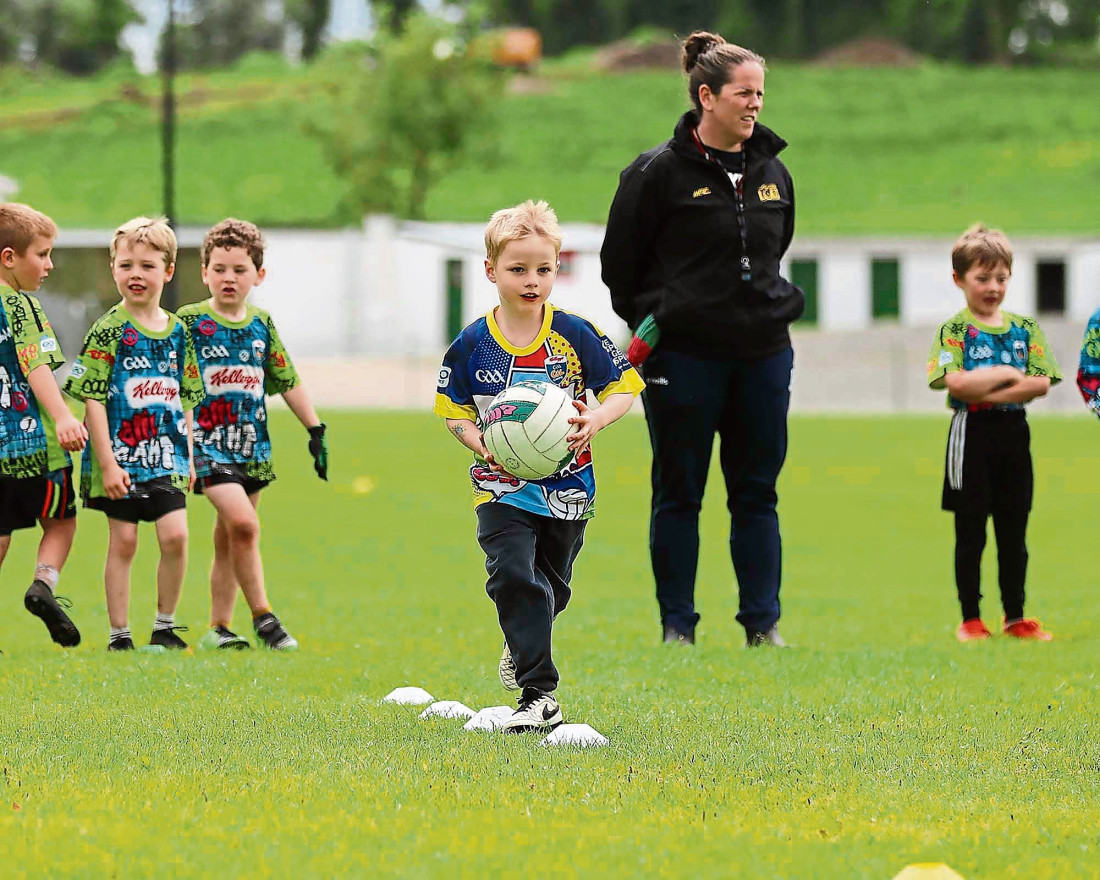By Steven Poacher
THIS Saturday morning at 10am, we have our annual Coach Education Day at St Joseph’s in Newry.
The four guest coaches presenting on the day provide arguably one of the finest line-ups we have had to date.
Colm Collins, former Clare senior football manager, will kick-start the day with an indoor talk on ‘Creating a spirit and togetherness within a squad.’ Mick Bohan, current Dublin ladies manager, will provide the first of the pitch sessions on ‘Introducing the concept of complex skills.’
Next up will be Philip Kerr, renowned coach, tutor and author. Philip will deliver a session on ‘The Three Friends in Attack.’ Our pitch sessions will conclude with Roscommon u-20 Coach, Evan Talty on ‘Small Sided Games to develop transition play.’
When we talk about a games-based approach to training, most coaches would probably assume they do that anyway, but you would be surprised at how many children would still be coached via a drills-orientated approach which will certainly not enhance or improve the overall quality of the player.
Some may argue that you need a balance of both methods, but a traditional drill only approach won’t allow for the transfer of skills to game-like situations. There is generally an overemphasis on technical skills and direct instruction coupled with mindless boring drills that lack specificity.
A games-based approach, on the other hand, will allow the coach to design game-specific stations – players will use the technical skills in game-like scenarios and players will learn through games and enjoyable learning situations.
It is a much better rounded holistic approach to learning for the young player as it incorporates a guided discovery.
The games-based approach empowers young players to solve problems that arise in games and allows them to discover and explore a range of methods, which is a large part of the fun in learning.
In the GAA, it is only over a decade ago that for the first time a games-based approach to training was being pushed by Croke Park, but this is not a new phenomenon.
Back in 1982 in Loughborough University, researchers Bunker and Thorpe developed a concept called TGfU, which stood for Teaching Games for Understanding. It was a concept built around teaching children games by playing games, with a child-centred approach where the leader acts as a facilitator and the participants make their own games in order to maximise the level of challenge and fun.
More recent studies of TGfU have identified six basic concepts:
– Teach Games through Games.
– Break Games into their simplest format – then increase complexity.
– Participants are intelligent performers in games.
– Every Learner is important and is involved.
– Participants need to know the subject matter.
– Need to match participants’ skill and challenge.
Rather than just teaching GAA specific games, games should be separated into four categories:
Target Games – Players propel an object, preferably with accuracy at a target. A target game I used recently in underage level was called defend your cone and involved tall cone where players tried to knock opposition cones over.
Net/Wall Games – Players propel an object into space trying to make it difficult for an opponent to return it. A simple example may be football or hurling tennis over a line of poles or cones as the net.
Striking/Fielding Games – Players strike an object so it’s placed away from defenders in the field. Any time of year, football rounders is always fantastically popular and its benefits are enormous.
Territory Games – Games in which players try to invade an opponent’s territory to score. A simple fun game I play with younger school children is called defend your square.
If young children are exposed to a range of the above categories of games, fundamental movement, technical skills, tactical skills, problem solving will be improved in the young player. They will become literate in a variety of games and activities and will give them a broader understanding and competency of the skills, tactics and movement associated with playing a wide range of sports.
We are very fortunate all our local clubs are putting in a huge amount of quality work which in turn leaves our job coaching in school much easier.
Undoubtedly this Saturday, any coach who attends our annual day will leave with a world of ideas which in turn can only make them a better coach. Education empowers you.
Receive quality journalism wherever you are, on any device. Keep up to date from the comfort of your own home with a digital subscription.
Any time | Any place | Anywhere












